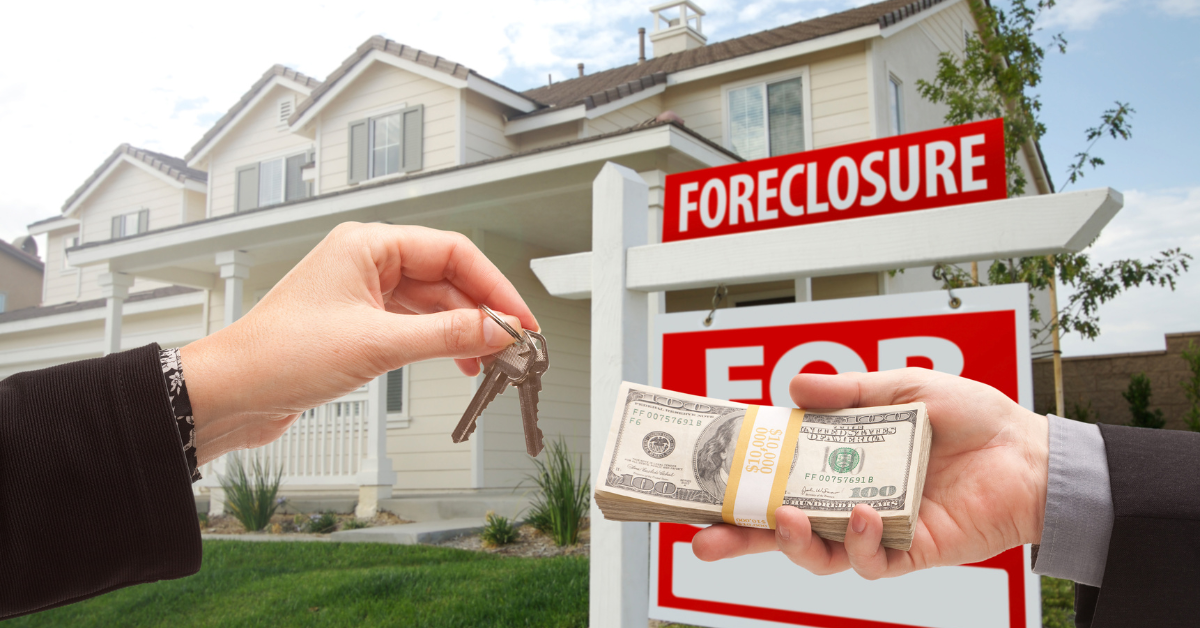Home purchasing leads to various options, including the less-traveled path of buying a foreclosed home. This option can offer significant rewards, particularly in value for money. Foreclosed homes often cost less than traditional listings, presenting a unique opportunity for homebuyers and investors. However, it’s crucial to understand the foreclosure process and recognize a property’s potential. In this guide, we’ll explore key strategies for finding the best deals on foreclosed homes, providing insights for first-time buyers and experienced investors to navigate the foreclosure market effectively. Join us as we delve into smart, strategic investments in foreclosed properties.
Understanding Foreclosed Homes
What is a Foreclosed Home?
A foreclosed home is a property that has been taken over by a lender, typically a bank, due to the previous owner’s failure to keep up with mortgage payments. This process results in the property being put up for sale, often at a public auction, to recover the unpaid loan amount.
The Foreclosure Process
Understanding the foreclosure process is crucial. It begins when a homeowner defaults on their mortgage payments, leading the lender to issue a notice of default. This is followed by a pre-foreclosure period, during which the homeowner can either pay off the debt or sell the property. If unresolved, the property moves to an auction; if unsold, it becomes a Real Estate Owned (REO) property owned by the lender.
Benefits of Buying a Foreclosed Home
Cost Savings
One of the primary benefits of buying a foreclosed home is the potential for cost savings. These properties are often priced below market value to facilitate quick sales, offering significant savings compared to traditional home purchases.
Less Competition
Foreclosed homes can attract fewer buyers due to the perceived risks and the process complexities. This reduced competition can benefit buyers looking for a less stressful purchasing environment.
Where to Find Foreclosed Homes
Online Real Estate Platforms
Many websites specialize in listing foreclosed properties. These platforms offer comprehensive search tools, allowing potential buyers to filter properties by location, price, and other criteria.
Local Newspapers and Public Records
Local newspapers and public records can be valuable resources, as legal notices about foreclosure auctions are often published here. Regularly checking these sources can reveal potential opportunities in your area.
Real Estate Agents Specializing in Foreclosures
Working with a real estate agent specializing in foreclosed properties can be highly beneficial. These agents have access to up-to-date listings and can provide invaluable guidance through the purchasing process.
Evaluating the Condition of Foreclosed Homes
The Importance of Home Inspections
A thorough home inspection is vital when buying a foreclosed home, often sold ‘as is’. This means any existing issues, like structural, electrical, or plumbing defects, become the buyer’s responsibility. A professional inspection is key to identifying these problems, ensuring they don’t outweigh the property’s cost savings.
Understanding ‘As-Is’ Sales
In ‘as-is’ sales, buyers accept foreclosed homes in their current condition. Assessing potential repair costs is important to ensure they don’t eclipse the savings from the lower purchase price.
Financial Considerations
Financing Options
When buying a foreclosed home, it’s crucial to explore financing options. Traditional mortgages may not always apply, particularly for homes needing extensive repairs. Consider alternative financing like FHA 203(k) or home renovation loans for purchasing and repairing these properties.
Potential Additional Costs
Be mindful of extra costs beyond the purchase price, such as repairs, property taxes, insurance, and homeowner association fees. Planning for these expenses in advance can help avoid future financial stress.
Navigating the Buying Process
Steps in Purchasing a Foreclosed Home
Buying a foreclosed home can differ from a traditional home purchase. It usually involves the following steps:
- Identifying potential properties
- Conducting due diligence with inspections and title searches
- Securing financing
- Participating in auctions or negotiating with banks for REO properties
Legal Considerations and Potential Challenges
It’s advisable to understand the legal aspects of foreclosure sales. Buyers should know of any liens, unpaid taxes, or legal disputes associated with the property. Working with a real estate attorney or an agent experienced in foreclosures can help you navigate these complexities.
Tips for Finding the Best Deals
Identifying Undervalued Properties
Target undervalued properties in desirable areas or with high appreciation potential for the best foreclosure deals. Homes in less competitive markets may also offer significant savings and good investment returns post-renovation.
Timing and Negotiation Tips
Timing matters in foreclosure purchases. Homes on the market longer may provide more room for negotiation. Effective negotiation, understanding the seller’s circumstances, and making a reasonable, appealing offer are key to securing a good deal.
Local Market Analysis
Understanding the Local Real Estate Market
Gaining a solid grasp of the local real estate market is key. This involves understanding current market conditions, typical property prices, and housing demand. Such knowledge is crucial for informed decision-making, especially regarding offer amounts and resale value.
Utilizing Local Market Data
Use local market data to spot trends and opportunities, such as similar properties’ foreclosure rates and price trends. Staying informed about local developments helps you choose the right properties and make well-timed decisions.
Conclusion
Buying a foreclosed home can be a wise investment but requires careful consideration and strategy. From understanding what a foreclosure entails to conducting thorough property evaluations and navigating the purchasing process, each step is crucial. You can make more informed decisions by leveraging the tips for finding the best deals and doing a detailed analysis of the local market. Remember, the key to success in buying a foreclosed home lies in patience, research, and, sometimes, a bit of courage to seize the right opportunity. You can turn a foreclosed property into a valuable asset with the right approach and mindset.

